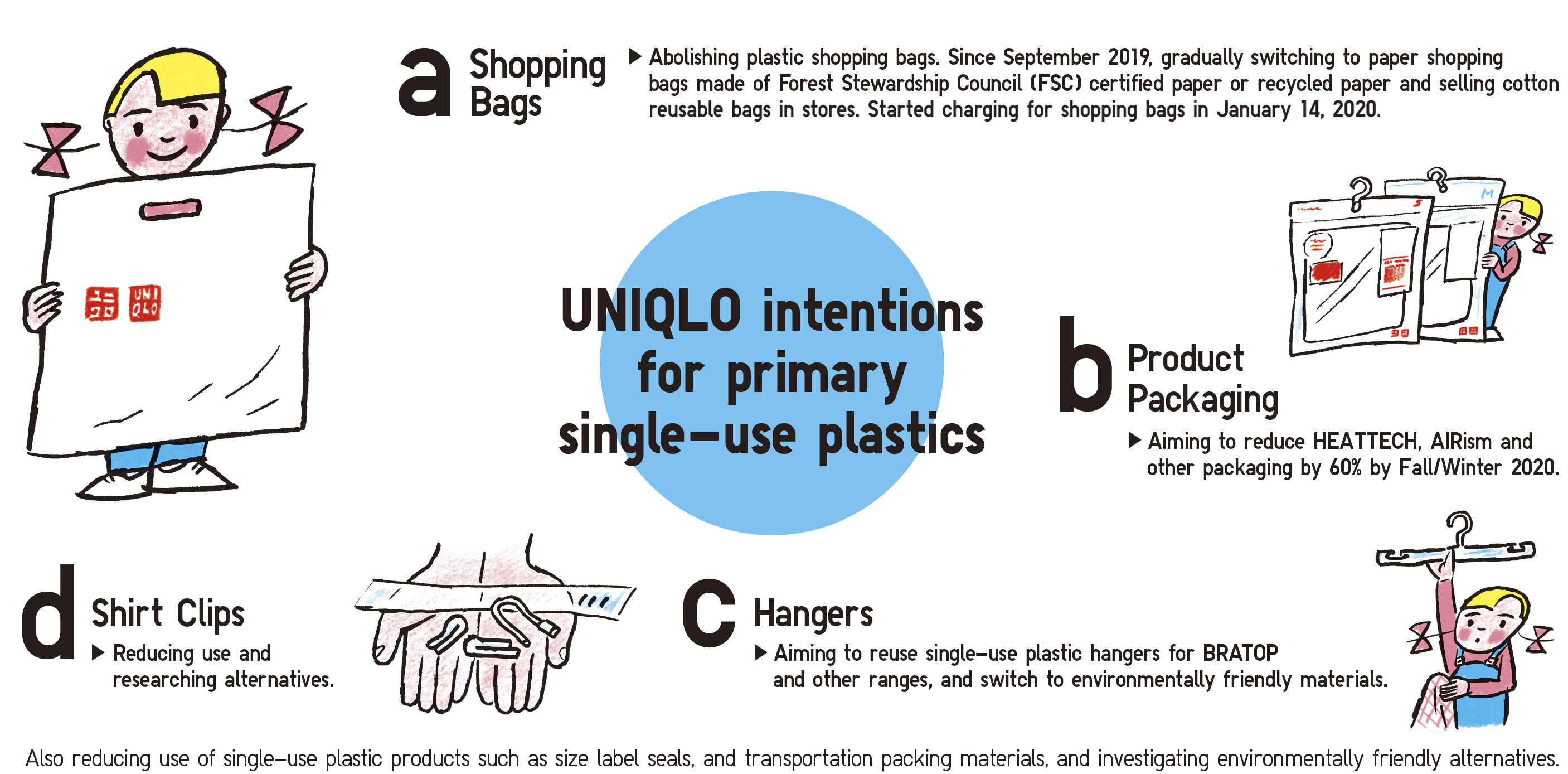Published on August, 2019 (from the power of clothes No. 21)
Whatʼs Wrong with Plastic?

An estimated 150 million tons of plastic waste is said to have accumulated in our oceans, caused primarily by a rapid global increase in single-use plastics in the 21st century. On top of that, another 8 million tons of new plastic waste flows into the ocean each year. That’s the equivalent of approximately 50,000 jumbo jets. If we continue like this, our oceans will end up containing more plastic waste than living things, and the destruction of ocean-based eco-systems caused by plastic waste will have an immeasurable impact on our lives.

Using Reusable Bags for Global Environmental Sustainability
The plastic waste in our oceans is a huge problem.
Furthermore, we now know that single-use plastic shopping bags handed out by stores constitute a major proportion of the plastic waste in oceans.
Single-use plastic bags are threatening our marine eco-system in various ways as marine creatures mistake them for food and swallow them, or get them caught around their legs or necks.
Plastic shopping bags are light, tough-wearing, and convenient, but also fated to be discarded once people get home from the store and unpack their purchases. In other words, they are single-use plastic items.
Since most of us separate single-use plastic bags and shopping bags when we put out the trash, some people probably expect them all to be collected and recycled.
A considerable portion of them are indeed collected, recycled and reused as recyclable waste. However, since the volume of single-use plastic bags started to balloon worldwide at the beginning of the 21st century, the proportion of bags that are not collected and recycled has increased sharply, and ends-up flowing into rivers, lakes and oceans.
Such shocking circumstances demand fundamental solutions. In other words, the determined implementation of a firm commitment not to use, or make, single-use plastic products whenever possible.
UNIQLO has used single-use plastic to date, not just in the form of white shopping bags given to customers in stores, but also in instore product packaging, size labels, shirt clips, and hangers used to arrange BRATOP and other ranges. These are all single-use plastic items.
We anticipate the greatest reduction in plastic use by eradicating the large volume of white plastic shopping bags we distributed in the past. So that is where we’ve decided to begin.
From September 2019, we will start gradually eliminating plastic shopping bags. As an alternative, we will start offering paper shopping bags (made from Forest Stewardship Council (FSC) certified paper or recycled paper), and selling cotton reusable bags in stores. We then intend to start charging for paper shopping bags from January 14, 2020.
We have also started investigating and researching environmentally friendly alternatives to replace our other single-use plastic items.
UNIQLO’s ultimate simple, high-quality LifeWear clothing concept is founded on a policy to deliver long-lasting clothes, and a desire to support simple lifestyles. To reduce the amount of plastic waste in our oceans and waterways, we will ask customers to bring their own tote bags or use UNIQLO reusable bags. Encouraging a lifestyle that doesn’t create plastic waste can also contribute to global sustainability.
UNIQLO would like to invite all our customers to take this first step together with us, and support vital global plastic reduction efforts.


